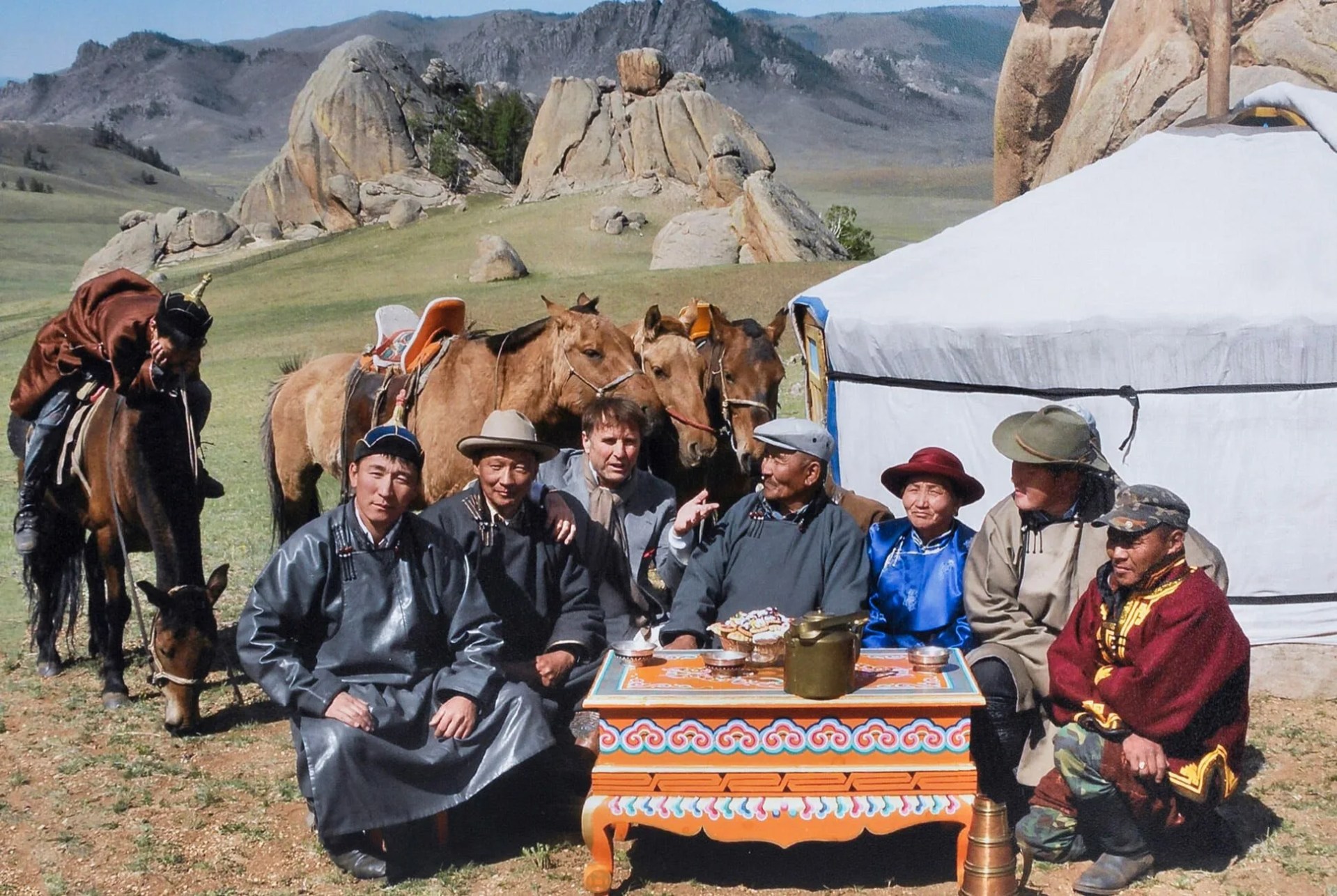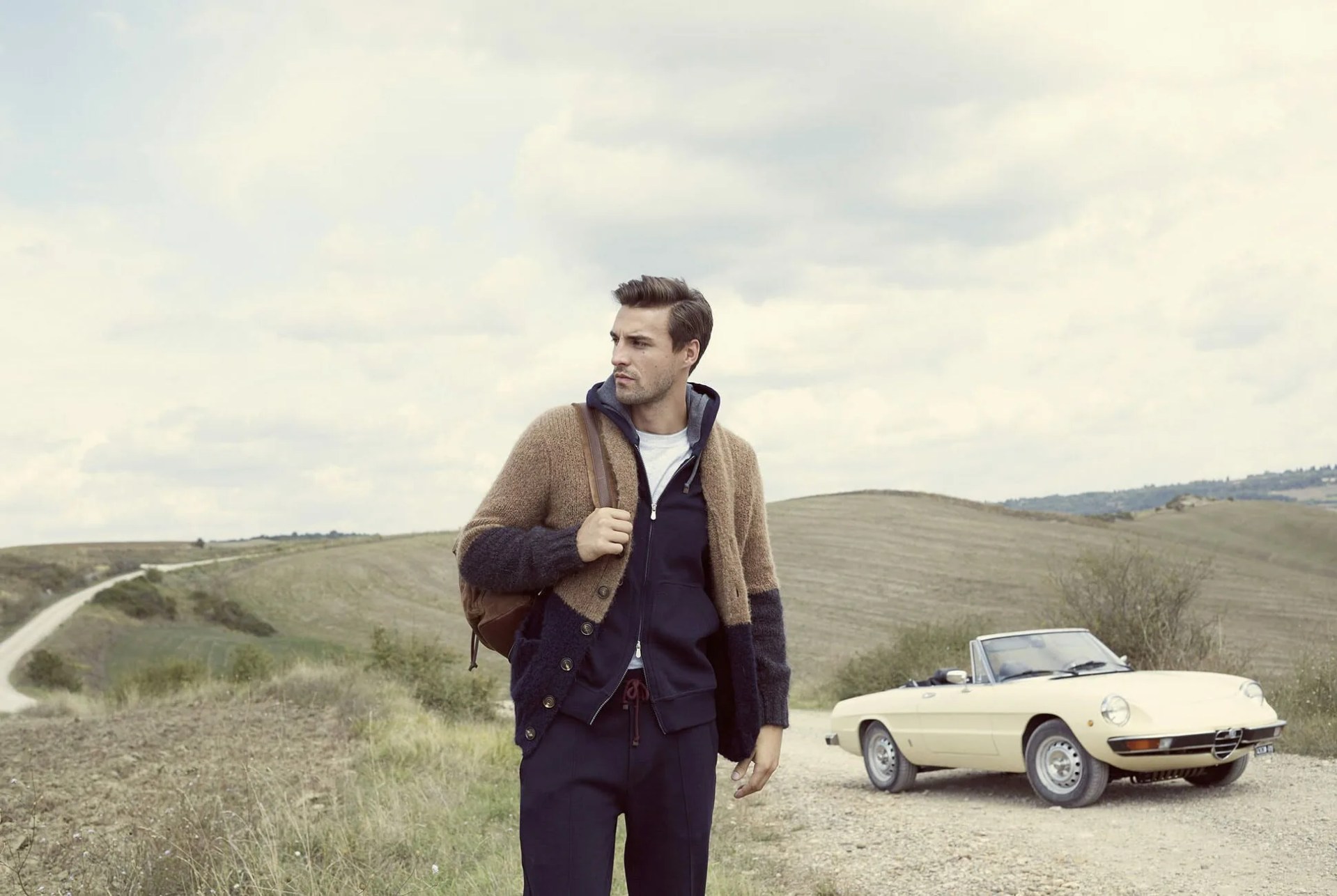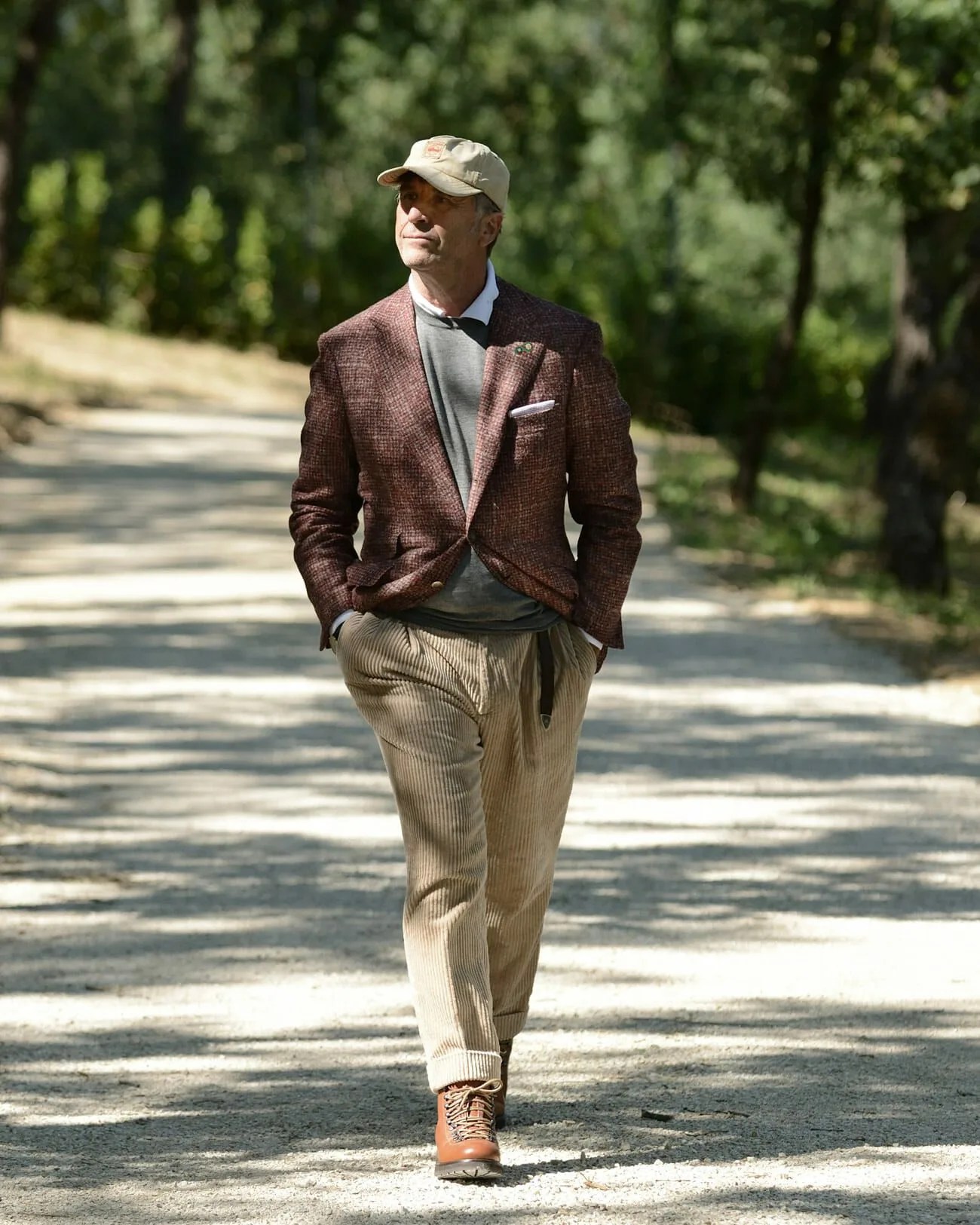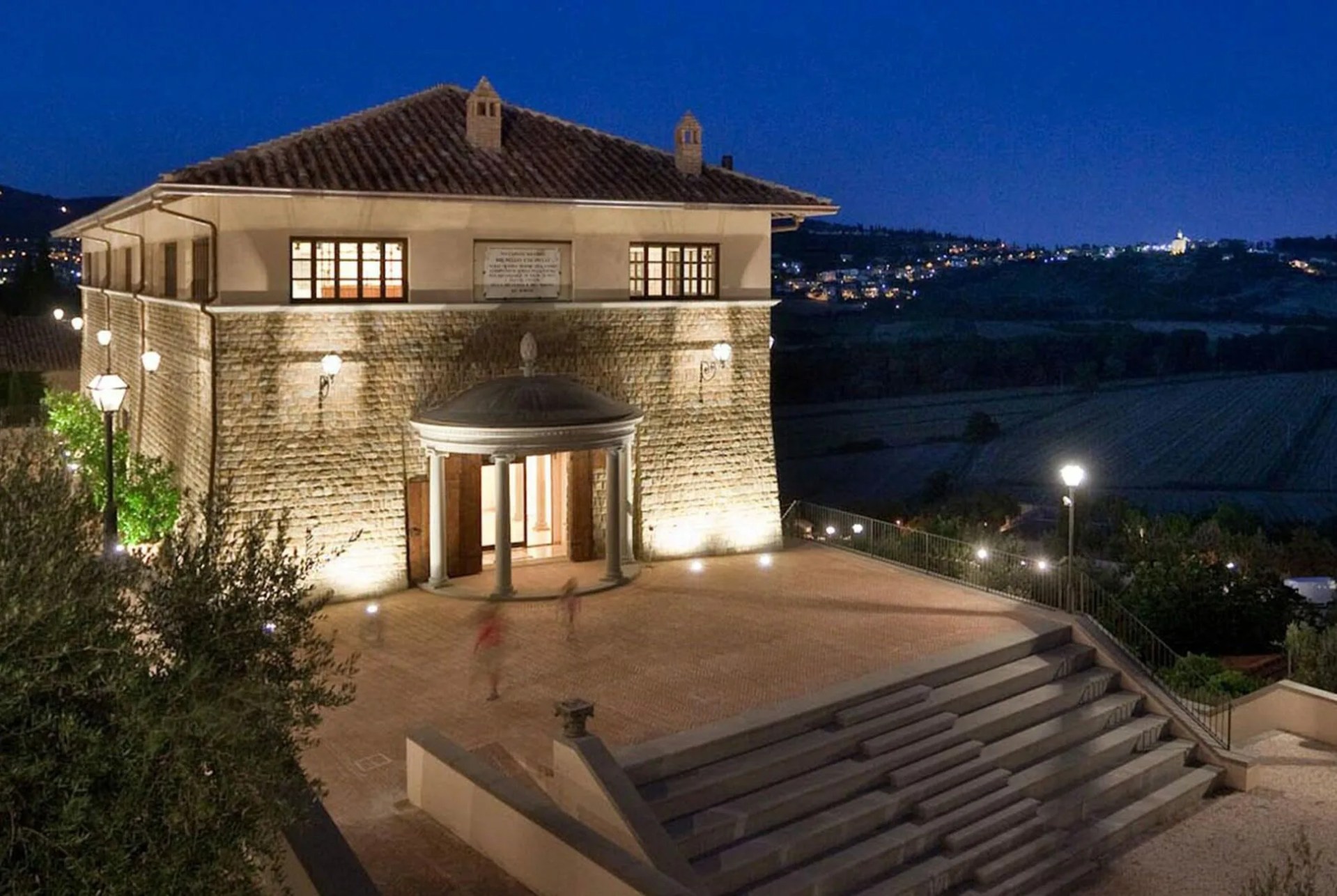It wouldn’t be irrational to call Brunello Cucinelli an enlightened thinker. His eponymous luxury apparel brand is based in the 14th-century Italian hamlet of Solomeo, situated in the mountains about two hours southeast of Florence. In countless interviews, he readily shares that the around 800 of his company’s 1,300 workers also live in the small village, handling everything from the production of sample garments to investor relations. For them, the work day starts at 8 AM. At 1 PM, there’s a 90-minute lunch consisting of homestyle specialties and local wine. And the end of the day is a hard stop at 5:30 PM — that means no last-minute business calls and no emails from home.
Cucinelli pays his employees about 20 percent more than the manufacturing industry average and donates 20 percent of his company’s profits to the Brunello and Federica Cucinelli Foundation. Established in 2010, the foundation has the lofty mission “to support any initiative enhancing knowledge, protecting the land and its monuments, highlighting the value of tradition, promoting spiritual and daily values of mankind.”
Working in Solomeo may seem like something of an ideal existence now, but that’s largely due to Cucinelli’s entrepreneurship decades ago. In 1977, after dropping out of engineering school, the 24-year-old Cucinelli began making brightly colored cashmere sweaters for women in a small workshop in Ellera di Corciano, reacting against the somber palette available on the market. A year later, he founded Brunello Cucinelli SpA with an initial loan of about $550. The company relocated to Solomeo in 1987 and continued to grow through the ’90s, introducing men’s products and opening its first boutique in ’94. In 2012, Cucinelli listed his company on the Milan Stock Exchange and has reported double-digit growth in each successive year. Five years after going public, the brand’s market valuation was over €1.6 billion.
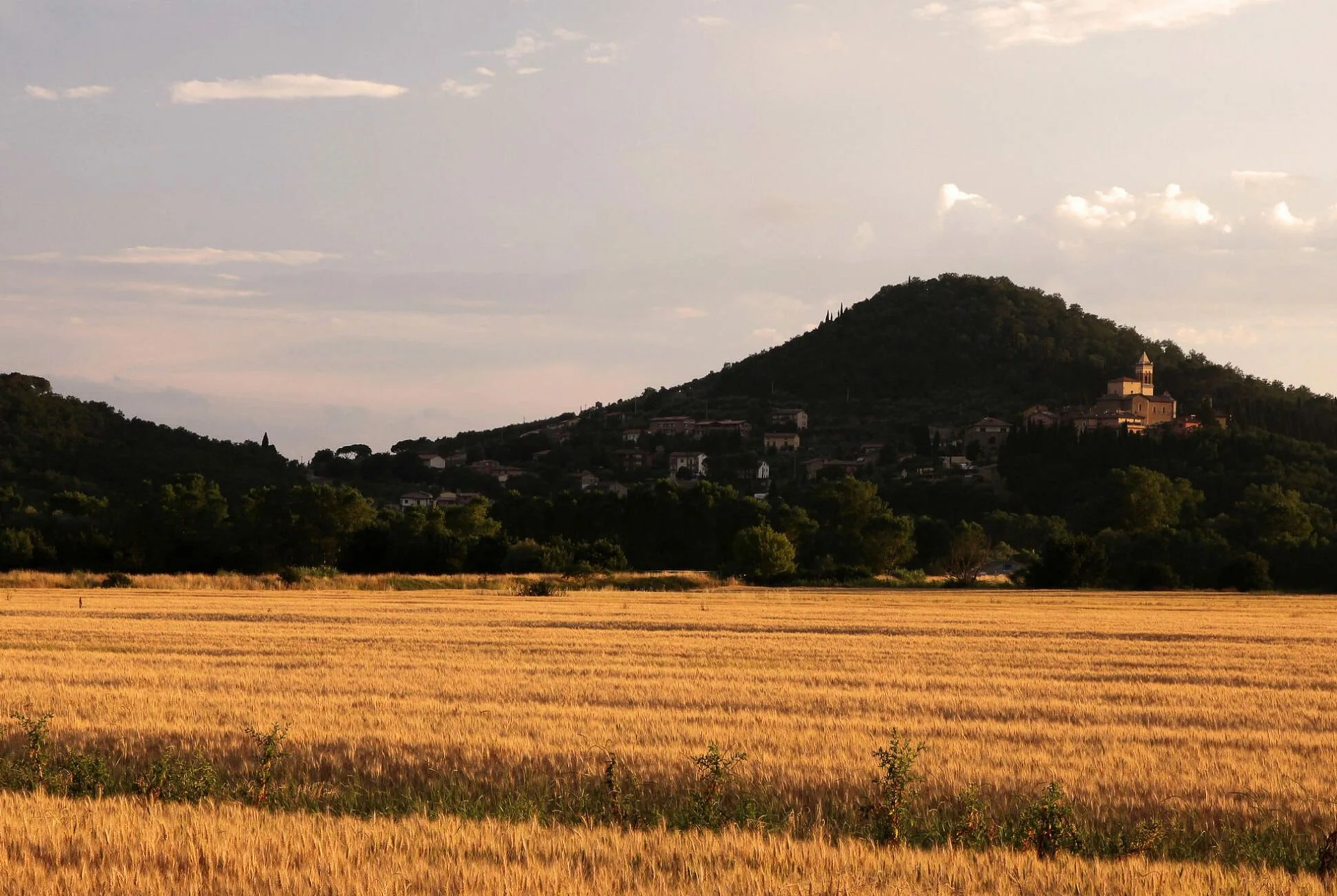
While Brunello Cucinelli offers a wide range of apparel and accessories for men and women, the brand is still deeply rooted in cashmere knitwear. Priced in the thousands of dollars, these garments showcase the top-tier sustainably harvested fibers and detail-oriented Italian manufacturing. (If a sweater with a four-figure price tag gives you sticker shock, it’s worth noting that the brand’s operating margin is 13.8 percent, noticeably lower than Bloomberg’s average of 17 percent for the luxury market. That means customers are getting more for their dollar, but the product speaks for itself — these sweaters are investments designed to last for decades.)
With his company, Cucinelli has proven that capitalism and human dignity aren’t mutually exclusive. A profitable company can and should look after its workers and give back to the community. It is possible to deliver consistent growth without sacrificing a product’s quality or a worker’s quality of life. So, simply calling Cucinelli enlightened is something of a disservice — he’s a man of action and a true visionary. For those interested in his perspective, Cucinelli uses the brand’s website to share his philosophical writings. Some of his published pieces include “The Decline of Consumerism in Favor of a Fair Use of Things,” “Humanist Artisans of the Web” and “Address to the Masters of Labour.”
But for those in Solomeo, Cucinelli’s vision is downright tangible. In 2008, he opened the Forum of the Arts, a set of four spaces — the Aurelian Neohumanistic Academy, the Garden of Philosophers, the Amphitheatre and the Theatre Cucinelli — all built by Umbrian master craftsman. Five years later, he founded the Solomeo School for Arts and Crafts, which trains young people in traditional trades like tailoring, agriculture and masonry (students receive monthly wages while attending classes). This year, his Project for Beauty completed the replacement of abandoned factories with four large parks. One space, the Park of Dignity, features a monument crafted with ancient techniques emblazoned with the words “Tributo alla Dignità dell’Uomo” (Tribute to Human Dignity).

